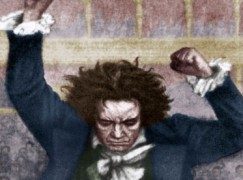The weekend read: Why do we want genius to be mad?
mainDr Judith Schlesinger asks: What useful purpose does it serve to insist that our greatest creative minds must be somehow damaged and disturbed, particularly when there is no real evidence for it?

Read the full article here.





Comments